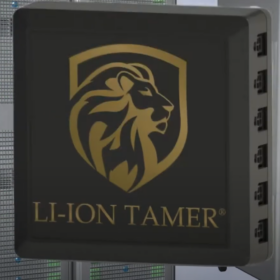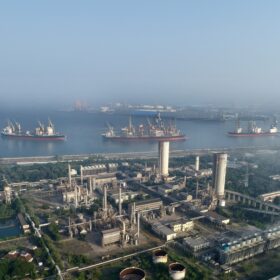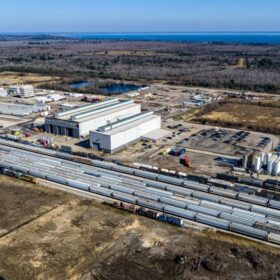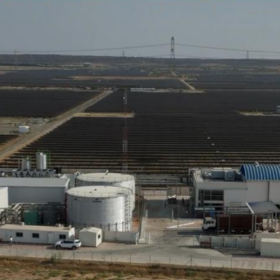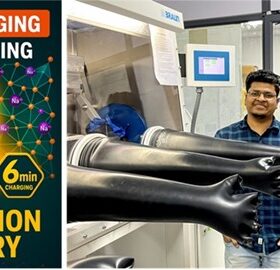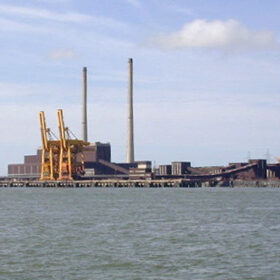Honeywell adds Li-ion Tamer for battery fire safety in buildings
Honeywell has acquired the Li-ion Tamer business from Nexceris, a leader in off-gas detection technology for lithium-ion batteries. Li-ion Tamer’s early warning technology detects battery off-gassing, which typically precedes thermal runaway, providing facilities with vital time to intervene before a battery fire starts.
AM Green acquires stake in Greenko from ORIX
The stake acquisition enhances AM Green’s upstream integration with Greenko, which runs over 10 GW of renewable and pumped storage assets and is building the world’s largest “Intelligent Energy Storage Cloud Platform.”
Solarium, NISE sign MoU to develop solar-based heating solutions for cold regions
Solarium Green Energy Ltd has signed a Memorandum of Understanding (MoU) with the National Institute of Solar Energy (NISE), under the Ministry of New and Renewable Energy, to jointly develop advanced solar-based heating technologies.
John Cockerill Hydrogen raises €116 million to drive global growth
The amount covers nearly all the funding required to accelerate the development of John Cockerill’s hydrogen business, including the rollout of next-generation pressurized alkaline electrolyzer technologies and international expansion.
The Hydrogen Stream: Toyota Kirloskar, Ohmium to co-develop green hydrogen microgrid solutions in India
The partnership will explore scalable and cost-effective green hydrogen microgrid solutions by combining Toyota’s expertise in proton exchange membrane (PEM) fuel cell technology with Ohmium’s modular and high-efficiency PEM electrolyzer systems.
Adani commissions off-grid 5 MW green hydrogen plant
Adani New Industries Ltd (ANIL) has launched a 5 MW green hydrogen pilot plant in Kutch, Gujarat. Powered entirely by solar energy and backed by battery storage, the plant runs fully off-grid, marking a new step in decentralized, renewable hydrogen production.
Indian researchers develop fast-charging sodium-ion battery, promising over 3,000 cycles
NAtrium Super Ionic CONductor (NASICON) materials continue to show their potential for sodium-ion anodes in high-performance batteries, with fresh research out of India delving more into the materials.
The role of advanced transformers in India’s green transition
Without resilient, responsive, and renewable-ready transformer networks, India’s decarbonization goals risk being destabilized by the very variability they aim to harness.
Ireland shuts last coal plant, becomes 15th coal-free country in Europe
Moneypoint in County Clare, Ireland, joins the ranks of other European nations exiting coal by shutting off power generation at its sole remaining coal plant. Industry observers say Ireland’s increased renewable energy generation in recent years, particularly in wind, has contributed to this milestone. Moneypoint now functions as a backup oil burner under emergency instruction, but it is no longer active in the wholesale electricity market.
Monetizing hydrogen and green infrastructure in emerging markets – an EPC perspective
Emerging markets face significant obstacles in the production of green hydrogen, primarily high production costs and limited access to funding. It is crucial for firms to establish strong financial structures to ensure the success of their projects.
